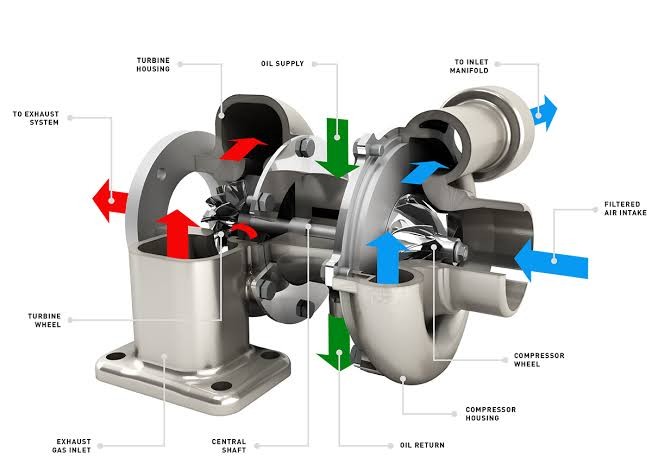Facing turbocharger problems? This guide offers insights into common causes, detecting symptoms, and choosing between repairs and replacements to restore your engine's power.
Turbochargers are a common feature in modern vehicles, providing increased engine performance and improved fuel efficiency. However, just like any other mechanical component, turbochargers can fail, leading to decreased performance and the need for costly repairs. In this article, we'll take a look at the causes of turbo failure, how to diagnose the problem, and what you can do to repair or replace a damaged turbocharger.
Causes of Turbo Failure:
There are several common causes of turbo failure, including:
- Overheating: Turbochargers generate a lot of heat, and if they get too hot, they can fail. Overheating can be caused by a variety of factors, including a lack of oil, poor oil quality, clogged oil passages, or a failing oil pump.
- Lack of Lubrication: Turbochargers rely on oil to keep them lubricated and functioning properly. If the oil level is too low or the oil quality is poor, it can lead to turbo failure.
- Foreign Object Damage: Debris from the engine or from the air intake can cause damage to the turbocharger, leading to failure.
- Wear and Tear: Over time, the moving parts of a turbocharger will wear out, leading to failure.
- Diagnosing Turbo Failure: To diagnose a failing turbocharger, you should look for the following symptoms:
- Decreased Performance: If the turbocharger is not functioning properly, you may notice a decrease in engine performance, such as reduced power or acceleration.
- Engine Warning Light: A warning light on the dashboard may indicate a problem with the turbocharger.
- Excessive Smoke: If the turbocharger is failing, you may notice an increase in the amount of smoke coming from the tailpipe.
- Engine Noise: A failing turbocharger can cause a whistling or hissing noise, especially when accelerating.
Repairing or Replacing a Turbocharger: If you suspect that your turbocharger is failing, it's important to have it diagnosed and repaired as soon as possible. Repairing a turbocharger can be a complex and time-consuming process, and in many cases, it may be more cost-effective to replace the entire unit.
Replacing the Turbocharger: If a turbocharger is beyond repair, it will need to be replaced. Replacing a turbocharger typically involves removing the old unit and installing a new one, along with any necessary gaskets or seals.
Repairing the Turbocharger: If the turbocharger is repairable, the damaged parts will need to be replaced. This may include bearings, seals, or other components.
Regardless of whether you choose to repair or replace a failing turbocharger, it's important to use a qualified and experienced mechanic to ensure that the job is done correctly. A damaged or improperly installed turbocharger can cause further damage to the engine, leading to even more costly repairs.
In conclusion, a failing turbocharger can cause decreased performance, engine warning lights, excessive smoke, and engine noise. To diagnose and repair a damaged turbocharger, it's important to use a qualified and experienced mechanic, and to consider both repair and replacement options before making a decision. Regular maintenance, including regular oil changes and inspections, can help to prevent turbo failure and ensure that your vehicle continues to run smoothly

Comments (0)
Please login to join the discussion
Be the first to comment on this article!
Share your thoughts and start the discussion